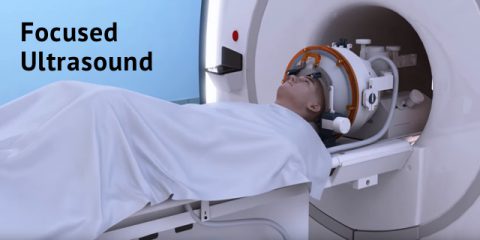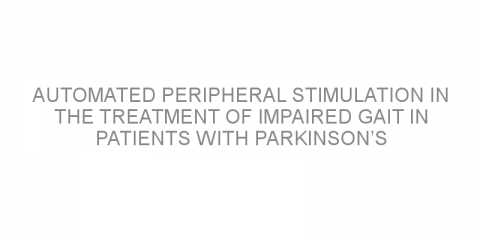Around one million people in the US have Parkinson’s disease. In Parkinson’s, the dopamine-producing cells of the brain–in an area called the substantia nigra–die off. Abnormal proteins are what kill these brain cells. In fact, all neurodegenerative diseases have deposits of abnormal proteins, and neurobiologists call them...
Read MoreParkinson’s Disease Posts on Medivizor
The impact of lifestyle factors on Parkinson’s disease
In a nutshell This study aimed to investigate the effect of lifestyle factors (LFs) on Parkinson's disease (PD). This study found that LFs can influence PD progression and mortality. Some background Parkinson’s disease (PD) affects the nerve cells in the brain that produce a substance called dopamine. This results in symptoms...
Read MoreLevodopa in the treatment of Parkinson’s disease: when to start treatment?
In a nutshell This study investigated if levodopa has an effect on Parkinson's disease (PD) progression or just treats the symptoms. Researchers suggested that treatment with levodopa improves the symptoms of these patients, without having an effect on disease progression. Some background The standard treatment for PD is levodopa. Doctors may...
Read MoreLesion surgery versus deep brain stimulation in patients with tremor
In a nutshell This study compared the use of deep brain stimulation (DBS) and lesion surgery (LS) in the treatment of tremor. This study found that LS and DBS were equally effective in these patients. Some background Tremor is an involuntary movement of a body part. It is commonly a symptom in Parkinson's disease (PD). It can also be...
Read MorePhysical activity is associated with improved outcomes in patients with Parkinson’s disease
In a nutshell This study investigated the association between physical activity and the progression of symptoms in early Parkinson’s disease (PD). Researchers suggested that physical activity is associated with less disease progression. Some background PD is a chronic disorder that affects brain cells. Symptoms can go from muscle rigidity and...
Read MoreRisk factors for disease progression in Parkinson’s disease
In a nutshell This study investigated the factors that could predict disease progression in Parkinson's disease (PD). Researchers suggested that poor blood glucose level and heart diseases may be associated with faster disease progression. Some background PD is a chronic disease that affects brain cells. Symptoms can be associated with...
Read MoreIntense physical exercise therapy improves symptoms in patients with Parkinson’s disease
In a nutshell This study investigated the effects of exercise therapy to treat the symptoms of patients with Parkinson disease. Researchers suggested that exercise therapy improved the symptoms of these patients in a short-term period. Some background Parkinson disease is a progressive disease that affects brain cells. It causes impaired movements and...
Read MoreManagement of bladder problems in patients with Parkinson’s disease
In a nutshell This study reviewed several treatment options for bladder problems in patients with Parkinson's disease (PD). Some background The bladder relies on muscles to contract and release for urination. The brain typically controls this process. However, in certain neurological conditions, the bladder no longer receives correct...
Read MoreSearching for patients with Parkinson’s Disease with urinary symptoms trying two treatments
In a nutshell This trial is looking to compare behavioral training and drug treatment for treating urinary symptoms in patients who have Parkinson's disease (PD). The main outcome to be measured is the improvement in urinary symptoms. This trial is recruiting in Atlanta, Birmingham, and Richmond, the U.S. The details PD is a...
Read MoreAutomated peripheral stimulation in the treatment of impaired gait in patients with Parkinson’s disease
In a nutshell This study investigated the effects of automated peripheral stimulation (APS) in the treatment of gait disorders in patients with Parkinson’s disease. Researchers suggested that APS treatment is associated with improved gait in these patients. Some background Patients with Parkinson's disease (PD) usually show symptoms...
Read MoreSwitching from levodopa to an extended release levodopa for patients with fluctuating Parkinson’s disease
In a nutshell This study investigated the effectiveness and the dosing of switching from standard levodopa to the new carbidopa/levodopa extended release capsule (C/L ERC; Rytary) to treat Parkinson’s disease. Researchers suggested that C/L ERC was generally well tolerated and preferred by many patients. Some background Parkinson’s...
Read MoreAn adjusted levodopa dose prevents dyskinesia in patients with Parkinson disease
In a nutshell This study investigated how dyskinesia (DYS; abnormal, uncontrollable movements) affects the treatment of patients with Parkinson’s disease. Researchers suggested that DYS affects the treatment with levodopa and quality of life of patients. Some background Parkinson’s disease is a chronic disorder caused by the damage to...
Read More








